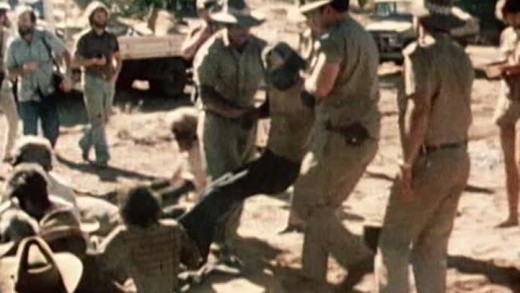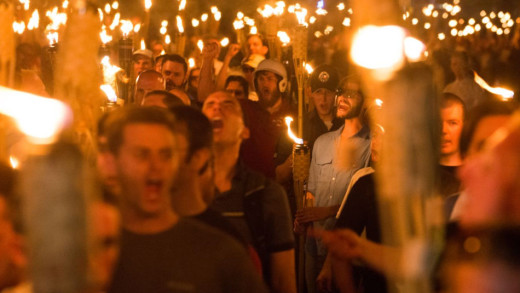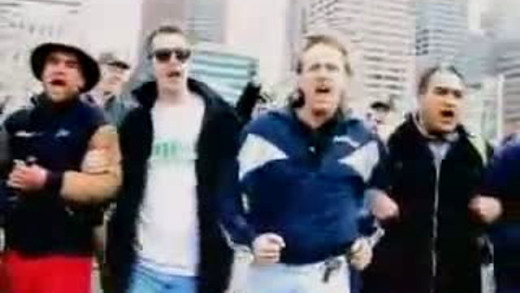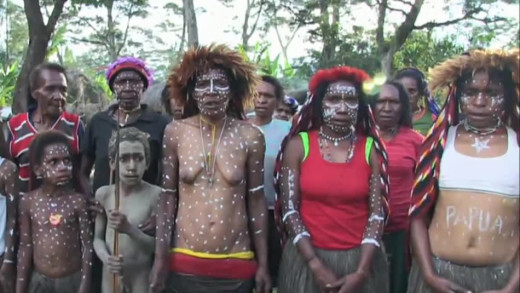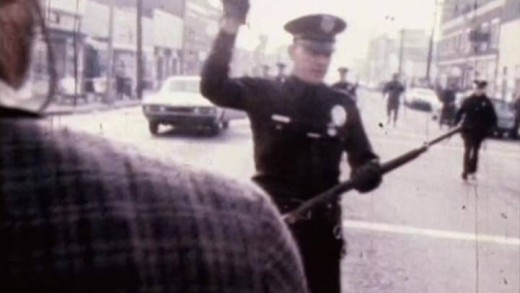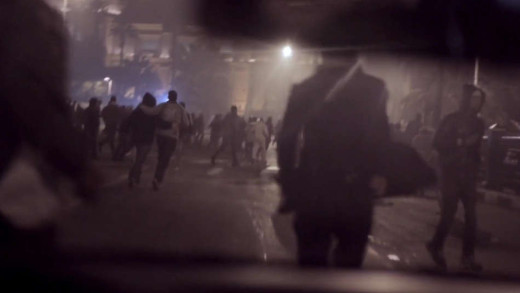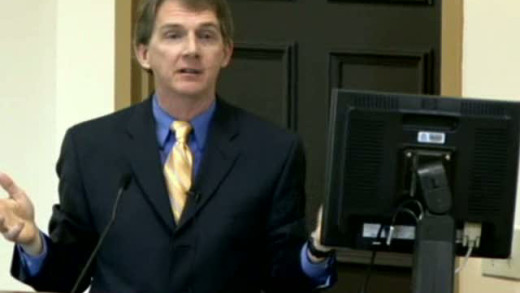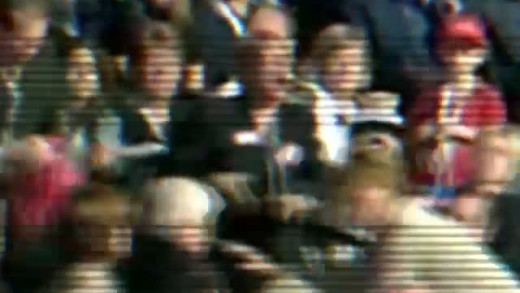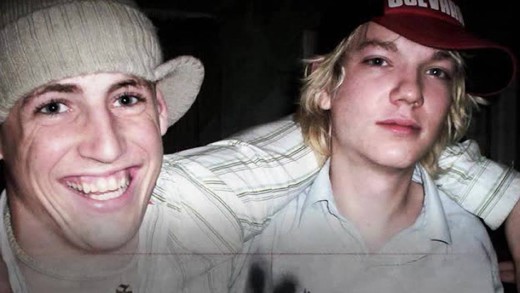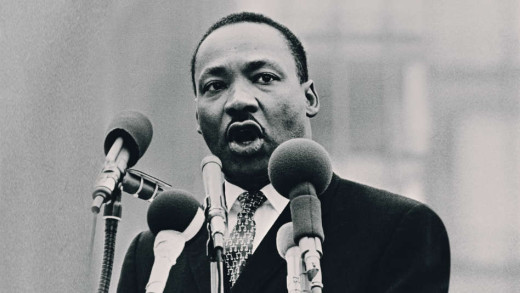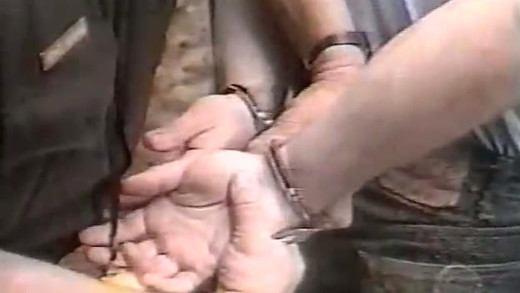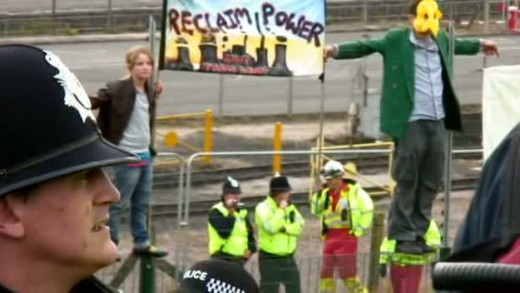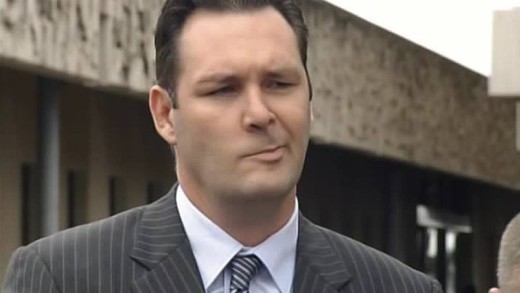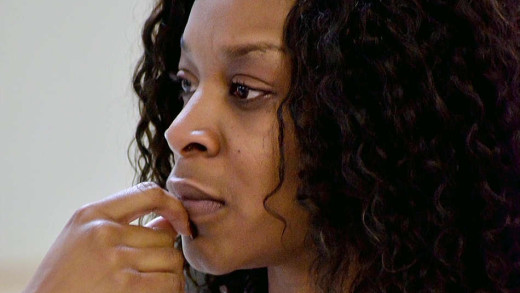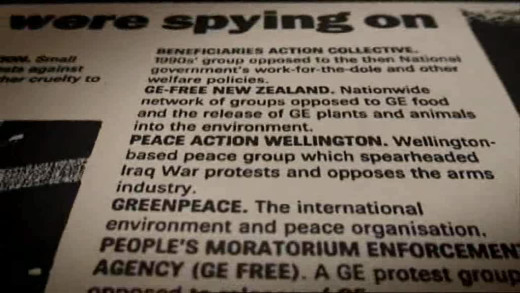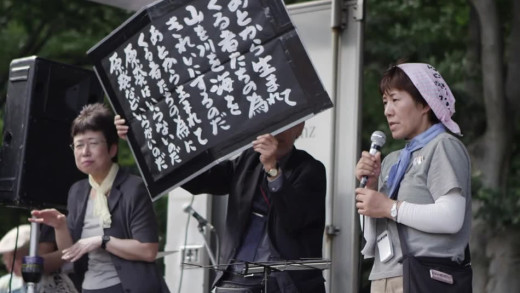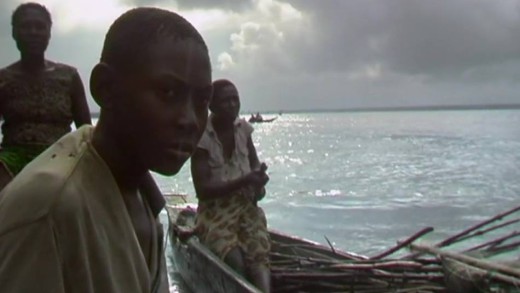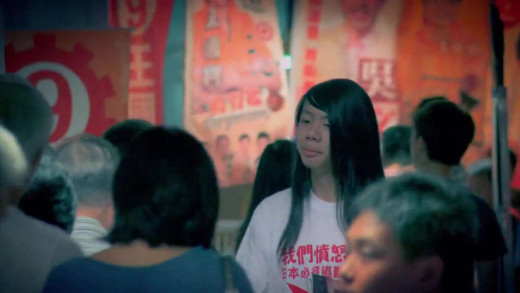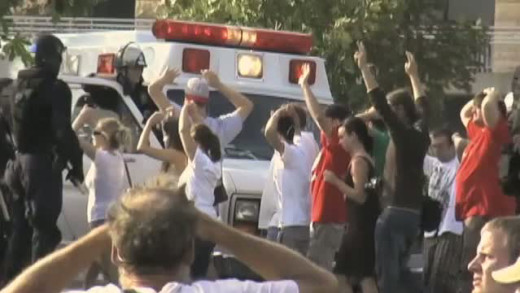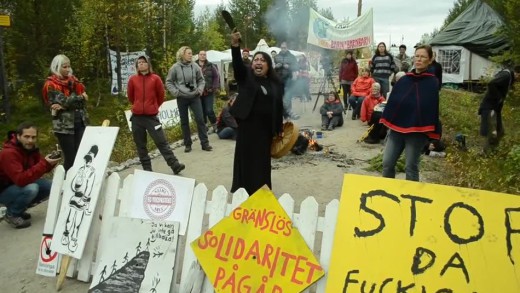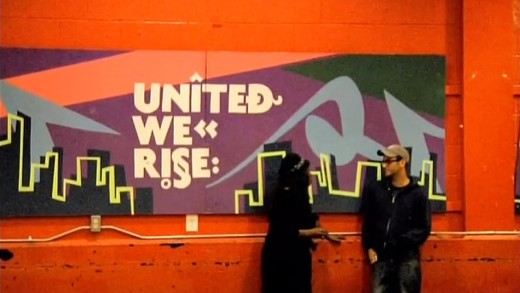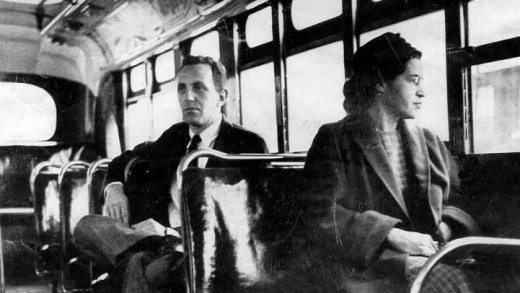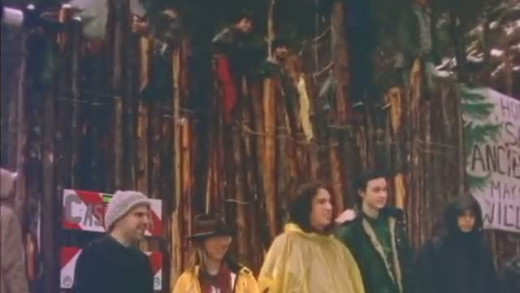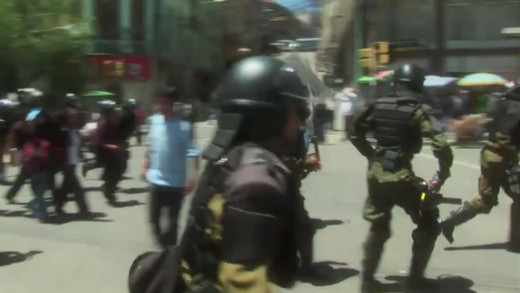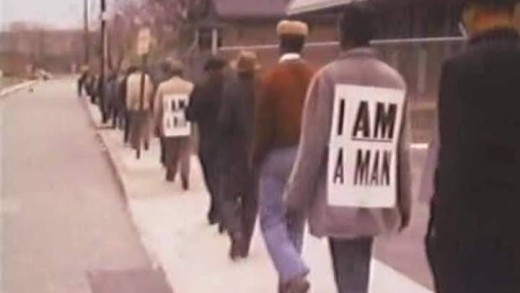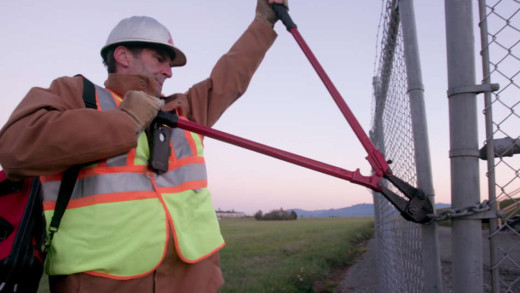On 1 May 1946, under occupation and wage slavery by the white man, 800 Aboriginal workers walked off sheep stations in the north-west of Western Australia, marking the beginning of a carefully organised strike that was to last for at least three years, and never officially ended. The strike was a demand for basic freedoms and for better wages considering the imposed conditions. A fight that sadly continues to this day, speaking to the truth of a country still occupied and brutally colonised, land that was never ceded.
Investigate journalist A.C. Thompson reports on the background of the white supremacists and neo-Nazis involved in the "Unite the Right" rally in Charlottesville, 2017. The event itself was chaotic and violent, amidst a backdrop of general passivity by the police and supine intelligence agencies, peaking on the day with a self-identified white supremacist ramming his car into a crowd of protesters, killing a young woman, Heather Heyer, and injuring 19 other people. Documenting Hate contextualises the events of that day by looking at the renewed trajectory of fascism in the United States, and the kinds of people attracted to its place in modern times, while profiling some of the characters from Charlottesville that lurked in the background. The second part of the investigation deals with the wake of the deadly anti-Semitic attack at the Tree of Life synagogue in Pittsburgh, showing how a neo-Nazi group, Atomwaffen Division, has actively recruited inside the United States military.
S11
S11 documents protest actions in Melbourne, Australia, 2000 against the World Economic Forum meeting. Specific accounts of police brutality and ferocious attacks on people protesting national and international issues are captured, in direct contradiction with mainstream media coverage, portraying activists as violent protesters.
Goodbye Indonesia investigates one of the world's most forgotten conflicts--the West Papuan struggle for independence. When the Dutch decolonised their empire after the Second World War, they handed it all to the emergent country of Indonesia--all except the territory of West Papua, which forms one half of New Guinea, the second largest island on Earth. This remarkable landmass split neatly by colonial powers into West Papua and Papua New Guinea, is like few other places in the world...
A secret illegal project from the 1950s, 60s and 70s called COINTELPRO, represents the state's strategy to prevent resistance movements and communities from achieving their ends of racial justice, social equality and human rights. The program was mandated by the United States' FBI, formally inscribing a conspiracy to destroy social movements, as well as mount institutionalised attacks against allies of such movements and other key organisations. Some of the goals were to disrupt, divide, and destroy movements, as well as instilling paranoia, manipulation by surveillance, imprisonment, and even outright murder of key figures of movements and other people. Many of the government's crimes are still unknown. Through interviews with activists who experienced these abuses first-hand, COINTELPRO 101 opens the door to understanding this history, with the intended audience being the generations that did not experience the social justice movements of the 60s and 70s; where illegal surveillance, disruption, and outright murder committed by the government was rampant and rapacious. This film stands to provide an educational introduction to a period of intense repression, to draw many relevant and important lessons for the present and the future of social justice.
The Square
The Square follows the anti-government protest movement in Egypt through the eyes of six very different activists, starting in Tahrir Square in 2011, up until the 2013 coup d'état. The film follows the activists on a life-changing journey through the euphoria of victory into the uncertainties and dangers of the current military rule, where everything they fought for is now under threat or teetering in the balance. The Square becomes an immersive experience, transporting the viewer into the intense emotional drama and personal stories behind the revolts. It is an inspirational account of people asserting their rights, struggling against multiple forces--from a brutal army dictatorship willing to crush protesters with military tanks, to a corrupt Muslim Brotherhood using mosques to manipulate voters; a struggle unfinished, unfolding.
Law Professor James Duane from the Regent Law School in Virginia Beach, Virginia; and Police Officer George Bruch from the Virginia Beach Police Department, both explain why even innocent people should never talk to the police or agree to answer questions from the police. Citing a trove of examples and even though pertaining to US law, this talk is particularly applicable for political activists the world over as Security Culture 101.
Ground Noise And Static is a video report on the protests that occurred in connection with the Democrat and Republican National Conventions in 2008. Corporate media would cover the platitudes and posturing of the politicians, but this film is interested in something else -- a story hidden in plain sight, told from the perspective of activists...
How did two childhood friends from Midland, Texas end up arrested on terrorism charges at the 2008 Republican National Convention? Better This World follows the journey of David McKay and Bradley Crowder from activist beginners to accused domestic terrorists with a particular focus on the relationship they develop with an FBI informant named Brandon Darby in six months leading up to their arrests. Weaving through a story of entrapment, idealism, political struggle and ultimate betrayal, Better This World winds up at questions of the core machinery of the justice system and its impact on civil liberties and political dissent in the modern "post-9/11 world."
HyperNormalisation wades through the culmination of forces that have driven this culture into mass uncertainty, confusion, spectacle and simulation. Where events keep happening that seem crazy, inexplicable and out of control—from Donald Trump to Brexit, to the War in Syria, mass immigration, extreme disparity in wealth, and increasing bomb attacks in the West—this film shows a basis to not only why these chaotic events are happening, but also why we, as well as those in power, may not understand them. We have retreated into a simplified, and often completely fake version of the world. And because it is reflected all around us, ubiquitous, we accept it as normal. This epic narrative of how we got here spans over 40 years, with an extraordinary cast of characters—the Assad dynasty, Donald Trump, Henry Kissinger, Patti Smith, early performance artists in New York, President Putin, Japanese gangsters, suicide bombers, Colonel Gaddafi and the Internet. HyperNormalisation weaves these historical narratives back together to show how today's fake and hollow world was created and is sustained. This shows that a new kind of resistance must be imagined and actioned, as well as an unprecedented reawakening in a time where it matters like never before.
MLK/FBI documents the extent of the FBI's surveillance and harassment of Martin Luther King based on newly declassified files and documents obtained through the Freedom of Information Act and unsealed by the National Archives. Using these, as well as restored historical video footage, the film explores the United States government's history of targeting Black activists through surveillance programs specifically aimed the Civil Rights Movement. The film covers the attempts by J. Edgar Hoover and the FBI to personally discredit King by collecting recordings and images of his private sexual life with women other than his wife. This was used to denigrate his status within the civil rights movement in the United States. Not all FBI documents have been declassified, but the whole record will be made available public in 2027.
Testify: Eco-Defence And The Politics Of Violence examines the forces that drive revolutionary environmental activism, using examples of direct-actions from the Animal Liberation Front (ALF) and the Earth Liberation Front (ELF) to illustrate tactics...
Just Do It -- A Tale of Modern-Day Outlaws follows a group of activists in the UK to document their protests and actions over one year dealing with issues around climate change. Demonstrations at Copenhagen’s 2009 G20 summit and at the Drax coal power station in North Yorkshire, England, are just some of the events documented.
The Tall Man
The Tall Man is the story of an Aboriginal man, Cameron Doomadgee (tribal name: Mulrunji) who in 2004 was arrested by Senior Sergeant Chris Hurley (the so-called 'Tall Man') in Palm Island, a tropical paradise in Australia's Far North. 45 minutes after the arrest, Mulrunji was found dead in the Palm Island police station. His injuries were like those of someone who'd been in a fatal car crash. The police claimed he had "tripped on a step," but the community knew this was bullshit. The Palm Islanders protested for truth and burnt down the police station. The subsequent trial of Hurley—who had been decorated for his work in Aboriginal communities—made headlines day after day, shadowed by Queensland police threatening to strike. The police officer was acquitted for the death by the Attorney General. The Tall Man follows these stories by delving into the courtroom, the notorious Queensland police force, and speaking with the Indigenous community of Palm Island, where this tale is sadly still indicative of many of the continuing atrocities of Aboriginal deaths in police custody.
In 2015, Sandra Bland, a politically-active 28-year-old black woman from Chicago was stopped by police for a minor traffic offence in a small Texas town. Three days later, she was found dead in a police cell. Though the state claimed it was a suicide, her death enraged the public amid allegations of racially-motivated police murder. This film begins in the days after Sandra's death, tracking the ensuing two-year battle between Sandra's aggrieved family and the State of Texas. Following the details about the case, Say Her Name is punctuated by Sandra’s own passionate and moving commentary in 30-second “Sandy Speaks” video blogs. We see an empowered, enlightened woman, whose sharp, humorous, charismatic remarks address subjects from educating kids about black history to police brutality to the importance of natural hair. Say Her Name takes viewers inside this story that galvanised activists across the United States and the world.
On October 15th 2007, a series of intense police raids occurred around the small village of Ruatoki in New Zealand. Operation 8, as it was called, was the result of 18 months of invasive surveillance of Maori sovereignty and peace activists accused of attending 'terrorist training camps' in the Urewera ranges—the homeland of the indigenous Tūhoe people. This film examines why and how the raids took place. Did the "War on Terror" become a global witch-hunt of political dissenters reaching even to the South Pacific?
Ever since three reactors went into meltdown at the Fukushima Daiichi Nuclear Power Plant in 2011; a broad, disparate, anti-nuclear movement is growing in Japan. Nowhere is that more apparent, perhaps, than in Fukushima prefecture, where a group of local women boldly protest the deafening silence of the Japanese government over the worst nuclear accident of this century. Largely ignored by their own media, these brave women brush aside cultural shyness and share their honest views on the state of the cleanup, the cover-ups, the untruths and the stagnant political climate in today’s Japan...
Sweet Crude
Sweet Crude is the story of how large oil corporations such as Shell and Chevron have absolutely decimated the Niger Delta, but the people are fighting back. The film shows the human and environmental consequences of 50 years of oil extraction against an insurgency of people who, in the three years after the filmmakers met them as college students, became the young of the Movement for the Emancipation of the Niger Delta (MEND). The movement is born after series of non-violent protests, and what the corporations and colonisers don't understand is that these people will fight for their land and emancipation until the end. Sweet Crude is their story of survival and armed resistance against corrupt governments and rapacious corporate power, amongst a complicit and collusive mainstream media.
Filmed over 18 months, Lessons in Dissent is a kaleidoscopic portrait of a new generation of Hong Kong democracy activists. 18-year-old Joshua Wong dedicates himself to stopping the introduction of National Education. His campaign begins to snowball when an interview goes viral on social media. With the new school year fast approaching, a showdown with the government seems inevitable. So with a microphone in hand, and still in his school uniform, he takes to the streets to protest, along with 120,000 people in support. Meanwhile, former classmate Ma Jai fights against political oppression on the streets and in the courts. Having dropped out of school and dedicated himself to the movement, he endures the persecution suffered by those not lucky enough to be protected by the glare of the media. Lessons in Dissent catapults the viewer on to the streets of Hong Kong, confronting the viewer with the country's rising energy of dissent.
The Trap
If one steps back and looks at what freedom actually means in the West today, it's a strange and limited kind of freedom. The United States and its empire self-describe fighting the Cold War for "individual freedom," yet it is still something that the leaders of our so-called democracies continually promise to give us. Abroad, in Iraq and Afghanistan, the attempt to force "freedom" on to other people has led to more than just bloody mayhem, and this, in turn, has helped inspire terrorist attacks in Britain and elsewhere. In response, the government has dismantled long-standing laws that were designed to protect individual freedom and civil liberties.
Unwritten Future
Unwritten Future documents the events during the Republican National Convention in 2008 where excessive use of force and questionable tactics by police are on full show. Even peaceful radio host Amy Goodman is arrested. The film is dispersed with interviews with activists, asking them what they are fighting for, contrasted with police response and the aftermath.
During the summer of 2013, a new area of occupied Sápmi (the northern parts of Fennoscandia in Europe) were under attack from the mining industry. If it were not for groups of brave resisters, the test blasting outside Jokkmokk in Lapland, Sweden, would have gone by without incident. The local Sámi people would have once again been exploited, and future generations poisoned without even a debate. But this time, something happened. The Gállok Rebellion tells the story of the resisters in Gállok, and shines a light on views which are not often televised. The film collates the efforts of many groups working together and serves as a call to action, to continue to protect the natural world which is under siege.
How to Let Go of the World and Love All the Things Climate Can't Change travels the globe, from New York City to the Marshall Islands and China, to meet with people who are committed to reversing the tide of global warming. The film examines the intricately woven forces that threaten the stability of the climate and the lives of the world's inhabitants.
Eyes on the Prize tells the story of the civil rights era from the point of view of the women and men whose extraordinary actions launched a movement that changed the fabric of American society, and embodied a struggle whose reverberations continue to be felt today. It is the story of the people--young and old, male and female, northern and southern--who, compelled by a meeting of conscience and circumstance, worked hard to eradicate a world where whites and blacks could not go to the same school, ride the same bus, vote in the same election, or participate equally in society. It was a world in which peaceful demonstrators were met with resistance and brutality--a reality that is now nearly incomprehensible to many young Americans. Through contemporary interviews and historical footage, Eyes on the Prize traces the civil rights movement from the Montgomery bus boycott to the Voting Rights Act; from early acts of individual courage through the flowering of a mass movement and its eventual split into factions.
An eclectic group of activists take a stand to protect an old growth forest from logging at Warner Creek in the Willamette National Forest of Oregon. The activists block the logging road, repel State Police and intervene to stop timber sales. Over months a community builds around the blockade and similar actions spread across the region. Filmed by the activists themselves, PickAxe is the account of the direct actions from the perspective of the participants to save Warner Creek...
How To Stop A Multinational follows three women in Argentina as they put themselves in harms way to stop a gold mining company from entering their town. With the activists having defeated a Canadian mining company, the campaign is now against a Chinese one that wishes to extend the operation, making use of large quantities of fresh water--up to 45,000,000 litres per day--a plan that seriously threatens the future viability of the town and the environment. This short film documents the campaign which is still in its early days, where activists carry out a series of direct-actions to stop the mining company from physically entering the town; training villagers, informing others and filming the outcomes along the way...
Spring of 1968 in Memphis Tennessee marked the peak of the Civil Rights movement in the United States. At the River I Stand sets out to reconstruct the eventful months leading up to this period by looking at what started as a strike by sanitation workers which quickly soared into a national conflagration. The film disentangles the complex historical forces that came together for the struggle as well the inevitability of tragedy at the death of many, including Martin Luther King. At the River I Stand brings into sharp relief issues that have only become more urgent in the intervening years: the connection between economic and civil rights; debates over strategies for change, and the questions of effectiveness of pacifist tactics for social change; the demand for full inclusion of African Americans in life; as well as the pressing fight for dignity for all working people...
If a crime is committed in order to prevent a greater crime, is it excusable? Is it, in fact, necessary? The Reluctant Radical follows Ken Ward as he confronts his fears and acts on these questions to stop climate change. After twenty years leading some of the most renowned mainstream environmental organisations, Ken witnesses first-hand how ineffective and unthreatening they are. As their efforts fail, and environmental collapse increases in scope and speed, Ken comes to see how direct action civil disobedience is the most effective political tool to deal with catastrophic circumstances. Ken breaks the law, to fulfil his obligation to future generations, to stop the oil economy. By following Ken for a year and a half through a series of direct actions, this film culminates with his participation in the coordinated action that shut down all the tar-sands oil pipelines in the United States on October 11, 2016. The film reveals the personal costs but also the true fulfilment that comes from following one's moral calling, even if that means breaking the law and its consequences. Ken has no regrets.
